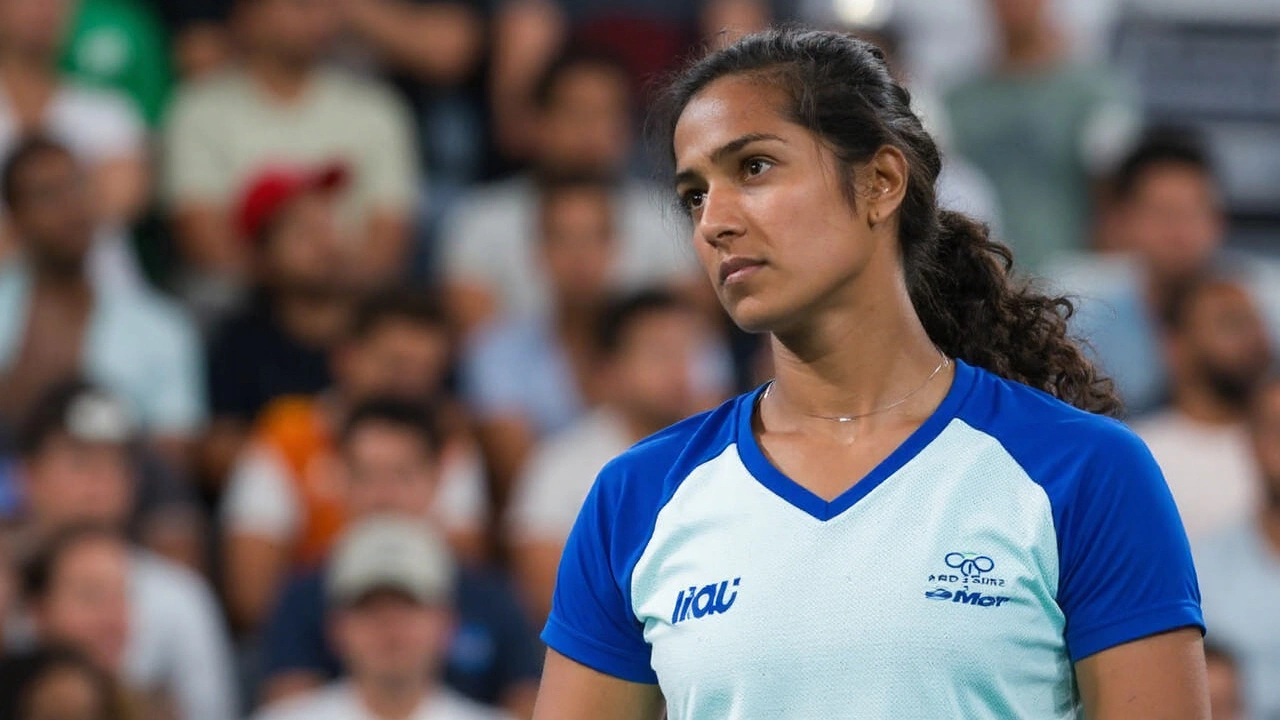By Aarav
India’s day at the Japan Open 2025 swung between relief and frustration. PV Sindhu bowed out in the opening round, beaten 21-15, 21-14 by South Korea’s world No. 14 Sim Yu Jin in Tokyo, while the men’s doubles pair of Satwiksairaj Rankireddy–Chirag Shetty and singles hopeful Lakshya Sen moved safely into the last 16.
Sindhu’s slide continues — and the pattern is hard to ignore
The scoreline told a familiar story. Sindhu started slowly, trailed 3-9, then stitched together a run to sneak ahead 13-12, only to see the momentum vanish as Sim tightened the screws. The Korean controlled the tempo with steady retrieving and late changes of pace, forcing Sindhu into rushed attacks and half-court lifts. From 13-12 in the first game, the match slipped away in a hurry.
This is Sindhu’s fifth first-round exit of 2025, alongside three second-round defeats — seven straight tournaments without a run beyond the round of 32 or 16. For someone who owns Olympic medals and a world title, that’s a stark dip. The setback also broke her previously perfect record against Sim, adding a psychological layer to an already taxing stretch.
After the match, Sindhu didn’t sugarcoat it. Training feels sharp, she said, but the match play isn’t sticking. She spoke about needing longer rallies, steadier pace through the back half of games, and better control under pressure. That points to a mix of endurance and decision-making — not just fitness, but the poise to pick the right shots deep in the rallies when legs are heavy.
The timing isn’t ideal. A Super 750 like Tokyo carries meaningful ranking points and seeding implications for the rest of the season. For a player who built her career on big-match temperament — Olympic medals in 2016 and 2020, a world crown in 2019, and a Commonwealth Games title — the current run highlights how unforgiving this tour can be when rhythm goes missing.
Tactically, Sim’s approach exposed exactly that. She kept the shuttle low, cut out cheap errors, and dared Sindhu to create winners from awkward positions. When Sindhu tried to up the pace, the errors crept in; when she held back, Sim stole the net and made her lift. The middle of both games turned decisive, suggesting not a lack of weapons, but a loss of sustained control.
Satwik–Chirag steady the ship; Lakshya through, Panda sisters exit
There was balance to India’s day thanks to the country’s top men’s pair. Satwiksairaj Rankireddy and Chirag Shetty handled their opener with clarity — heavy serves, steep angles, and relentless front-court pressure. When they get early control, rallies shorten, and it looks simple. That rhythm showed here, and it puts them on course for a trickier second-round test typical of a Super 750 bracket.
The duo’s credentials are well known: a historic Asian Games gold, major titles across the World Tour, and spells as the top-ranked pair. Tokyo’s conditions often reward fast, decisive pairs, and their style fits. The key in round two will be keeping first-serve quality high and protecting the flat exchanges, where elite opponents love to drag them into mid-court traps.
In men’s singles, Lakshya Sen also moved into the second round. His strength lies in neutralizing rallies early — tight spinning nets followed by a quick pounce on the lift. If he holds his length at the back and resists the urge to overhit, he has the tools to trouble higher seeds here. He’s been through form swings before; a calm, patient Tokyo could reboot his season.
The downbeat note in doubles came from the women’s side, where Rutuparna and Swetaparna Panda exited in the first round. They’ve shown promise on the circuit, but the jump into a Super 750 is steep. The margins are razor-thin: serves must be precise, and the first two shots decide most rallies. Experience at this level tends to pay back later in the season.
Big picture for India? Mixed, but manageable. A strong week from Satwik–Chirag can anchor the team’s standing, while any Lakshya surge brings bonus points. Sindhu’s challenge is more layered. She needs matches, not just practice — the kind that ask tough questions and force her to grind through the mid-game lapses that have become costly. With a heavy calendar ahead and the World Championships looming later in the season, rebuilding confidence one round at a time is the only equation that matters.
For now, Tokyo leaves India with two live threats and one big puzzle. The draw tightens from here, and the test gets sharper. That’s the job at a Super 750 — no soft landings, no easy fixes, just the next match and the chance to reset.
